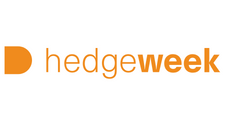Originally published by Hedgeweek on May 17, 2023.
When conducting research, quality is critical. “While it is becoming increasingly difficult for firms to sustain the rising operating costs of their research, delivering insightful and high quality investment research to clients remains imperative,” explains a report by CapGemini.
The quantity of research a manager carries out is also relevant as a too-small sample of views can skew the overall findings. In fact, one of the challenges managers face is discerning whether an expert call is representative of an industry or whether it is an outlier. The answer to this question can shift a manager’s choice to invest in a particular name or sector.
But, can anecdotal information be turned into quantifiable, reliable research? Are there tools which can help support this transformation?
Knowledge sharing
Though arguably, the concept of anecdotal data can be considered to be an oxymoron, the research industry has been working to generate solutions which can help managers leverage these nuggets of information and build a broader, more reliable understanding of the issue or sector under review.
Behavioural research by professor James Wainburg states there is a strong propensity to over-weight the informative value of anecdotal evidence, among managers. This further underlines the importance of supporting these subjective with a wider base of data.
One way of doing this is by leveraging the steady stream of research carried out by investment managers across the industry.
In a world in which peer-to-peer knowledge-sharing has become elemental, investor-driven platforms can see managers using the research carried out by their counterparts in other organisations to their advantage.
This currently takes the form of expert transcript libraries. Some of this information centres on current trends and may be short-term in focus, however the foundational questions being asked by managers are largely similar.
“Their questions tend to cover a universal set of themes on the competitive set, how their products rate against the competition on the key decision making criteria, the barriers to entry, customers’ willingness to pay, switching costs etc,” says Khang Nguyen, head of content and compliance, NewtonX.
A critical dimension of delivering a high quality transcript library is the depth of the questions being asked. Getting to the root of the matter is what elevates an interview, rather than simply asking questions for the sake of it.
“The intent of what the question is trying to answer and the insight into how an industry or business truly works is key to the quality of an interview,” Nguyen notes, “A high quality 20-30 minute interview can be worth much more than multiple hour-long interviews.”
The value of analysis
Some might question the value of accessing qualitative information which is not proprietary. However, the same occurs in the quantitative space, where managers use the same financial data used by their peers to inform their investment decisions.
Data is data, regardless whether it is quantitative or qualitative. It is what a manager does with that information that can give them a competitive edge. Ultimately, their unique analysis and distinctive interpretation of the data is what will make a difference to their investment process. The way this analysis either supports or refutes a manager’s investment thesis will drive the effectiveness of how transcript data is applied within that particular firm.
In addition to accessing transcript libraries, managers can look to combine research methods to enhance their research capacity and competence.
Scaling qualitative data is a challenge as it’s time consuming and often costly. Managers may need to carry out 50 calls to support one particular investment thesis, adding up to hundreds of calls a year. Even the managers who have the money and resources to do this would probably be better off spending this time performing higher value-add tasks.
Outsourcing these calls can be one remedy. However the process remains manual and the responsibility to transform that information into useful data which can be analysed in-depth would still sit with the manager
A more effective solution available is one which combines expert calls with expert surveys. This can dramatically increase the number of data points the manager has at their disposal for analysis, while saving time and money. The combination of these two research methods enables managers to quickly identify outliers and other responses which could be deemed of interest.
“A single expert call on its own is only anecdotal. Even when investors have time for 20 calls or more, that still only means they are talking to experts within a network, who are in a compatible timezone, and speak the same language,” Nguyen notes, “Adding expert surveys to their toolkit allows investors to get access to 50-500+ expert viewpoints that don’t take hours of time on the phone, taking notes, and then synthesising trends and takeaways. With expert surveys, investors can quickly visualise the data in charts, identify outliers and filter down to the specific subset that supports or refutes their investment thesis.”
After they have identified particular areas of further inquiry, the managers can then follow up on those targeted elements with specific questions, through leveraging libraries of existing content; the aforementioned transcript libraries. It is likely that other managers and investors asked these same questions and accessing that information can give the manager the answers they need, without needing to perform a fresh round of research.
A holistic framework for investment choices
By gathering relevant insight and conducting in-depth analysis on the results, managers can gain a more comprehensive and cohesive understanding of the companies and sectors they currently invest in or are planning to allocate to. This research can help them cut through any market noise and extract the true value of the potential investment.
Critical to this is that the value of research does not only lie in uncovering or getting access to new information. Rather, it helps create a framework which enables managers to test their investment thesis and push its boundaries. They are able to gain a holistic understanding of the factors driving performance in the particular sector or company they are reviewing, helping them make more informed investment decisions.



